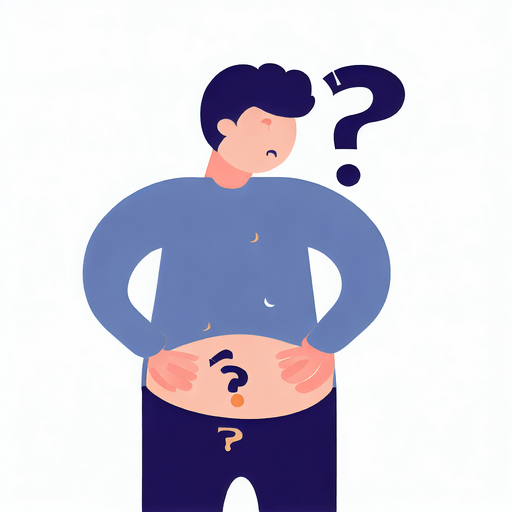Have you ever experienced the sensation of hunger, even when it seems like you’ve just eaten a substantial meal and your stomach should be full? This intriguing phenomenon can leave you puzzled and wondering what’s happening inside your body. Let’s dive into the fascinating world of human physiology to decode this mystery.
The Role of Digestion To understand why we sometimes feel hungry despite having a seemingly full stomach, we need to explore the digestive process. When you eat, your body’s primary goal is to break down the food you consume into smaller, absorbable molecules that provide energy and essential nutrients.
Stomach Empty, Intestines Full One key reason for this paradoxical feeling lies in the different stages of digestion. Your stomach serves as the initial processing center for food. It churns and mixes the food with gastric juices, breaking it down into a semi-liquid substance known as chyme. Once the stomach has done its job, it releases this chyme into the small intestine.
Here’s where the twist occurs. While your stomach may be relatively empty after it empties its contents into the small intestine, your intestines are still busy absorbing nutrients from the previous meal. The absorption process takes time and continues even after you’ve eaten. This means that, technically, your stomach can feel empty while your intestines are working diligently to extract the nutrients your body needs.
Appetite and Hormones Appetite regulation in the body involves a complex interplay of hormones and signals. Hormones like ghrelin, often referred to as the “hunger hormone,” play a significant role. Ghrelin levels tend to rise when your stomach is empty, sending signals to your brain that it’s time to eat.
Even if your stomach has emptied its contents, ghrelin levels might still be elevated, contributing to feelings of hunger. Additionally, other factors, such as the sight or smell of food, can stimulate appetite, making you feel hungry despite your stomach’s state.
Mind Over Matter The mind-body connection also plays a role in how hunger is perceived. Sometimes, psychological factors like stress, boredom, or emotional triggers can override physical signals. This means that you might feel hungry because of an emotional need rather than a physiological one.
Conclusion In conclusion, feeling hungry when your stomach seems full is a common experience, rooted in the intricate workings of your digestive system, hormones, and the mind. Understanding this process can help you make informed choices about when and what to eat.
Next time you find yourself grappling with this paradoxical hunger, remember that it’s a normal part of your body’s functioning. Pay attention to your body’s cues, and nourish it appropriately, whether that means having a small, nutritious snack or addressing any emotional needs that may be triggering your appetite. The mysteries of the human body continue to unfold, and each discovery brings us closer to understanding the intricacies of our own existence.

